|
Lavender
Peace of mind and purity are the distinctive features of the inimitable fragrance of lavender, which can even keep insects away. Lavender takes its name from the Latin verb "lavare" (=to wash). It is beneficial for headaches and restlessness and helps control flatulence, dizziness, bad breath, insomnia and depression. It can be applied externally to treat minor wounds, insect bites and small burns, and it also relieves rheumatic ailments. The addition of a few drops of lavender oil to bath water is also recommended. Lavender-spiced olive oil adds the perfect touch to some desserts, but it also tastes very good on barbecued and stewed meat, especially lamb and poultry, and on seafood and vegetables (and vegetarian dishes in general).
|
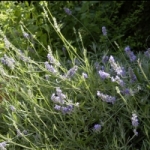
|
| |
|
Rosemary
Rosemary has always been used both as a spice and a herbal medicine. It is said to improve memory, and for this reason it has become a symbol of lovers' faithfulness (rosemary wreaths used to be made for weddings). It stimulates appetite and blood circulation, relieves fatigue and pain, increases blood pressure slightly and is a powerful treatment for sore joints and rheumatic ailments. It also enhances fat absorption. As a spice it can be used for all meat-based dishes (especially pork and lamb), French fries and roasted potatoes, vegetables and stuffings. Even rosemary icecream tastes deliciously!
|
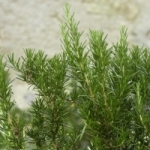
|
| |
|
Sage
"The man who has sage in his garden will never grow old" So states an ancient proverb known in China, Persia and some parts of Europe. The name "sage", from the Latin verb "salvere" (=to be healthy, to heal, to save) reminds of this old saying. Sage assists in digestion, is antiseptic, is effective against fungi and contains estrogens. It helps fight sweats, coughs, colds, irregular menstrual bleeding and menopausal discomfort. Sage is very powerful in assisting digestive processes after you've eaten spiced, sweet or fat-rich dishes. A great cook once wrote: "In the kitchen, sage is a moody star that takes offence easily. It loves having the limelights all to itself." For culinary purposes it is used with fat pork meat, duck and sausages. It is also a good match for other strong-tasting food like liver, but also for cheese and tomatoes. In Italy it is often associated to poultry and always to white beans.
|
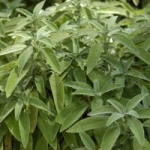
|
| |
|
Basil
In India basil is worshipped as a holy plant. It is said to guarantee a satisfactory love life thanks to its stimulating and ethereal oils. After Christ's Resurrection, basil was noticed growing around His tomb. Basil assists digestion and helps fight stomach and bladder problems, insomnia and migraine. It can be applied directly to skin wounds that are difficult to treat. In Mediterranean cuisine, basil is a must for all tomato-based dishes, both hot and cold, but it is also a very good match for zucchini, beans, mushrooms and pasta sauces like the classic Ligurian pesto.
|
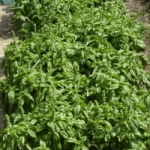
|
| |
|
Garlic
Garlic is beneficial for the digestive tract and is recommended to fight colds, high blood pressure, sclerosis and ageing in general. It can also be used externally to treat fungal contaminations. The strong aroma of garlic makes it suitable for spicy dishes, salads, marinades, sauces, vegetables, meat and fish.
|
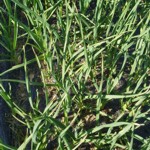
|
| |
|
Chili pepper
Chili pepper contains vitamin C and magnesium. It assists blood circulation, prevents colds and has a beneficial effect on the stomach. Its spicy taste is associated to the release of opiates that act as stimulants. Spicy food lovers can use it on any dish - but sparingly!
|
 |
| |
|
Peppermint
In Greek mythology, this was the name of a nymph loved by Ades, the god of the underworld. Jealous of Ades, Persefone turned her into a plant humans could trample. Though unable to stop her, Ades caused the plant to release a very strong fragrance when stepped upon. Peppermint stimulates digestion and can fight colds, hiccups and drunkenness. It is a perfect match for peppermint adn yoghurt sauces, new potatoes, salads and poultry.
|
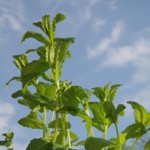
|
| |
|
Lemon
The high concentration of vitamin C makes this fruit a very good stimulant of the immune system. It contains germicides, has antiseptic and anti-inflammatory properties, reduces blood pressure and is refreshing. In the kitchen it is a good match for fish, meat, salads, vegetables, sauces and - in large amounts - mayonnaise.
|
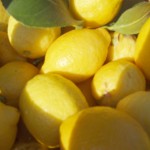
|
| |
|
Orange
In the ancient times, it’s told, there were seamen who could smell the fragrance of the oranges of their homeland up to ten sea-miles from the coast. Already the Roman scholars praised the healing force of the oranges. Besides the high vitamin C concentration, the components are relaxing. In the kitchen the orange can be used as well as for sweets, fish or meat dishes.
|
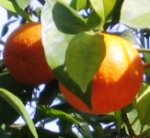 |
| |
|
Rose
The Rose has been accompanying the history of men for thousands of years, but she existed even before. Goethe named her “the most beautiful” and all roses have something in common: you can eat them all! Her blooms have a sweet, mild aroma and they should smell. The components of the queen of the flowers heal and pamper, are antispasmodic, relaxing and curative for a velvet soft skin.
|
 |